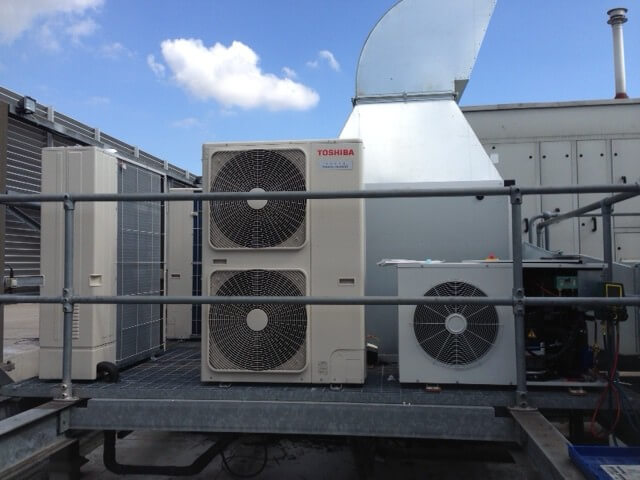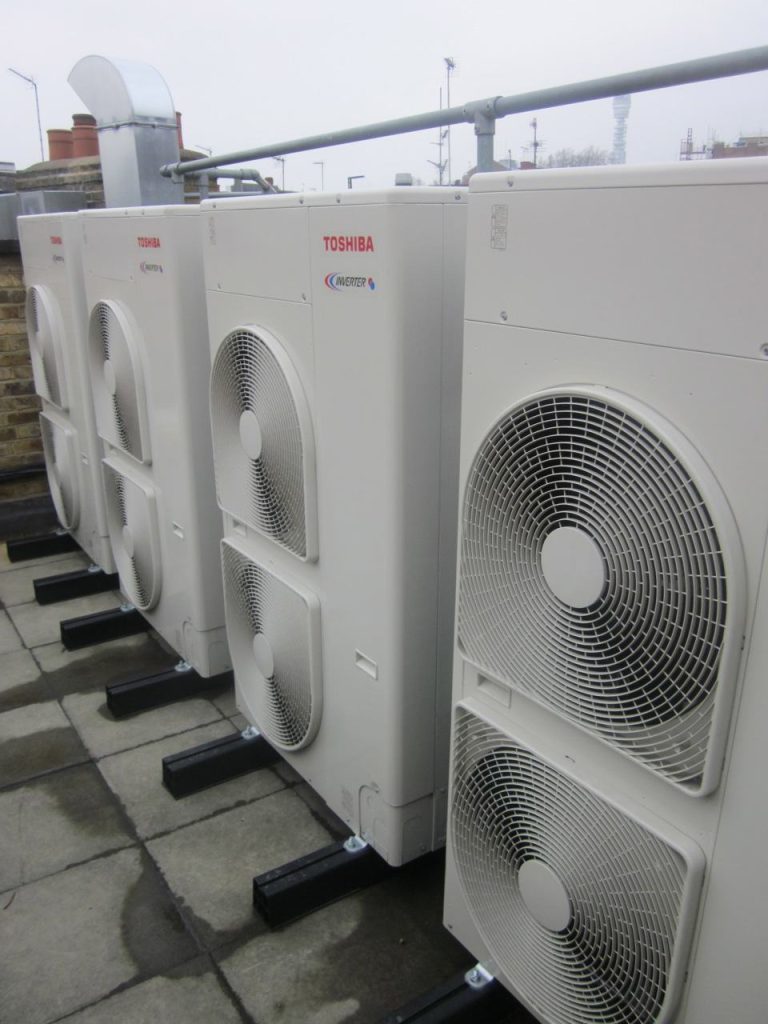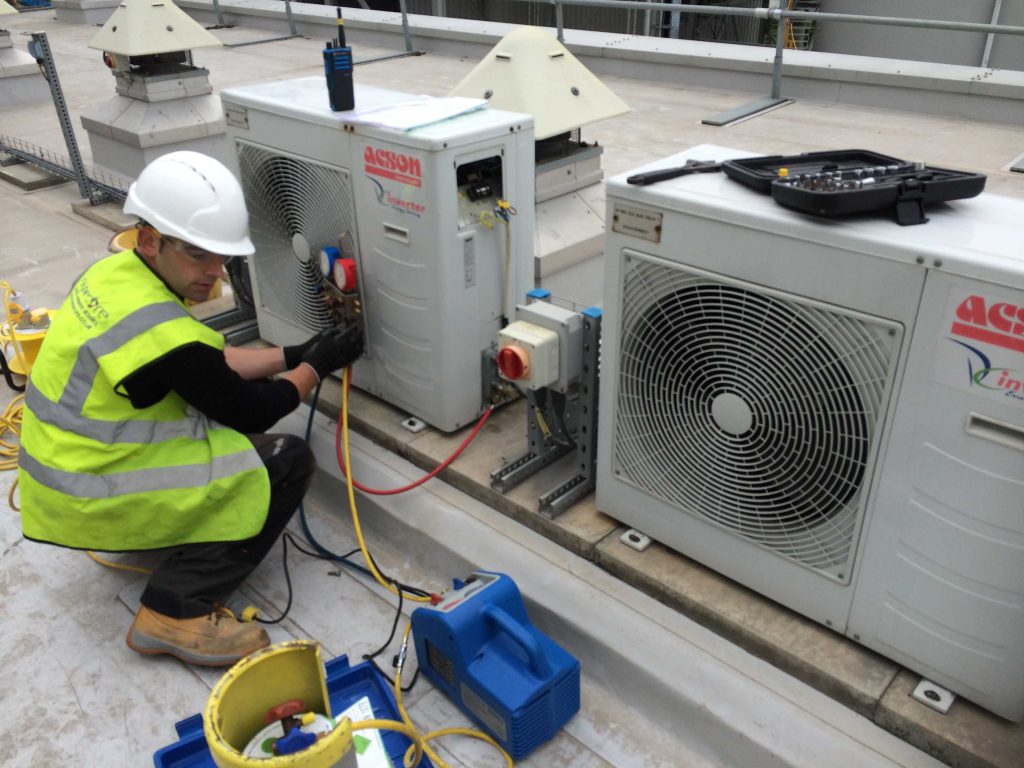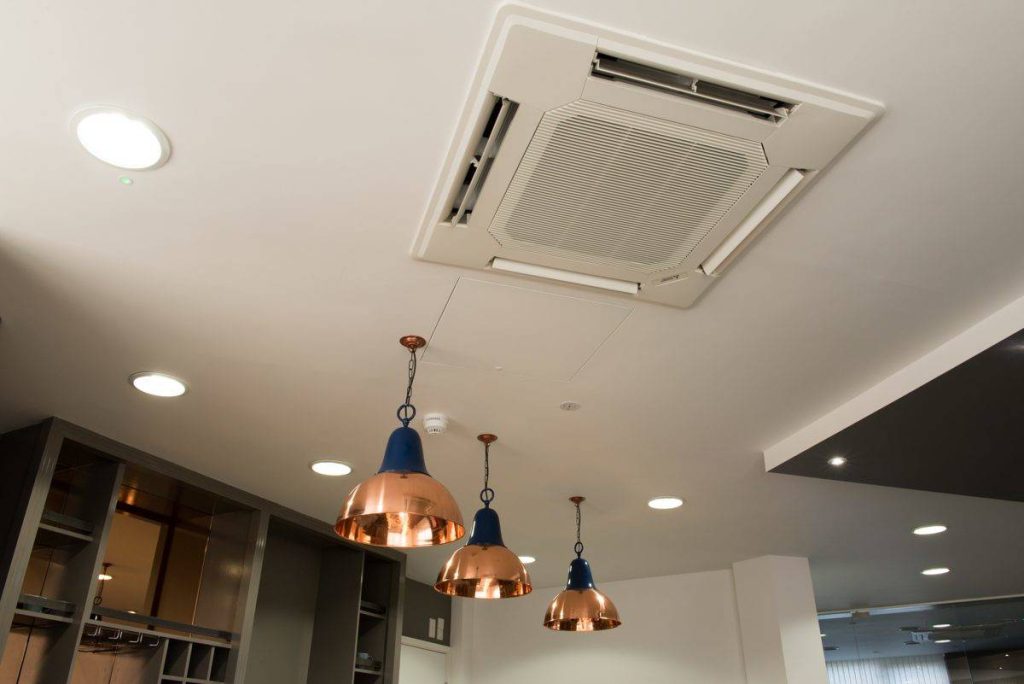Why It’s Important To Stay On Top Of Air Conditioning Maintenance

Estimated reading time 11 minutes
It’s always important to stay on top of air conditioning maintenance. We rely on air conditioning to keep our offices, restaurants, gyms, hotels, bars, leisure centres, temperature controlled server rooms, other critical equipment areas and warehouses cool and comfortable throughout the year. But in order for that to happen your air conditioning system must continue to work efficiently and effectively all year round. In turn this means that your air conditioning must be maintained.
Just like any other electrical system, air conditioning will experience daily wear and tear from regular everyday use and if not maintained will develop mechanical problems at some point in its lifetime. System maintenance will ensure your air conditioning system continues to run smoothly which in turn can also save you money in the long term and save you the headache of unexpected breakdowns and downtime when you can least afford it e.g. during the hot summer months and when it’s extremely cold outside.
So what can you look forward to by ensuring your air conditioning maintenance is one of your top priorities?
Consistent Performance
Regular air conditioning maintenance can help to diagnose and prevent future breakdowns. Problems that can be foreseen can be quickly rectified preventing breakdowns and downtime.
If one part of an air conditioning system fails it can in turn affect other parts of the system leading to bigger problems and more costly repairs. By stopping your air conditioning from malfunctioning you can also prevent subsequent problems or parts from becoming damaged. Regular air conditioning maintenance will therefore lead to improved and consistent performance of the system. In fact Samsung report that “With regular servicing a unit will maintain up to 95% of its original efficiency. This means that the cost of a regular service is quickly recovered in savings on your monthly electricity bill and in reduced repair costs.”
Longer Lifespan of Your Air Conditioning System
As mentioned above, regular air conditioning maintenance will find faults before they become issues and will also prevent other parts failures thereby increasing the lifespan of the individual parts and the system as a whole.
As well as circumventing faults, maintenance will take care of inspecting the system for leaks and cleaning the air conditioning of dust and debris which can clog filters making your HVAC run inefficiently, lead to blockages in air vents and the condenser unit which in turn can cause system issues.
Regular maintenance will ensure each of the parts of the system are clean and working correctly and efficiently ensuring your air conditioning is able to work normally and at optimal performance with no system strain.
Better Energy Efficiency and Lower Energy Bills
Regular air conditioning servicing and maintenance will ensure your air conditioning system runs more efficiently. As well as increasing the lifespan of your air con, cleaning your system means that air filters and condenser coils don’t have to overwork, using more energy in the process, to produce the same results.
Of course there comes a time when even with more energy being used to produce cool air and reduce humidly an air conditioning system will be unable to function if it is very dirty or has unresolved faults.
An inefficient air conditioning system will increase your energy bill and mean you will also have an increased carbon footprint as your system will be using more energy than needed if it was in a good state of repair. Routine, regular air conditioning maintenance will result in your system being more energy efficient and will also translate into cost savings when you receive your energy bill.
Lower Long Term Repair Costs
Although it might seem that by not having regular air conditioning maintenance visits you’ll be saving money, you will in fact simply be simply saving up problems and higher repair bill costs for the future. It’s also likely that just when you least expect it and when you most need your air conditioning it will fail leaving you in the position where you have to call in an air conditioning maintenance company to take a look at your system and to effect repairs to get you up and running again. If left with issues that result in a full system shutdown or failure air conditioning system repairs are likely to be more costly than regular air conditioning maintenance costs.
Air conditioning maintenance would likely have managed or even avoided repairs through routine inspection.
Better Air Quality and Reduced Humidity
Most people think air conditioning simply just “cools” the air. This isn't the case. As well as keeping a room or building at a comfortable temperature air conditioning also cleans and dehumidifies the air.
William Fisk, leader of Lawrence Berkeley National Laboratory’s Indoor Environment Group has stated: “AC can be expected to reduce the risk of heat stroke and heat-related death during heat waves, which are becoming more common with climate change. AC also enables windows to be maintained closed and AC systems usually contain filters that remove particles from the circulated air. With AC and closed windows, indoor concentrations of outdoor air pollutants such as particles, ozone and allergens are decreased.”
Dehumidifying the air minimises the amount of condensation build up within buildings and therefore makes buildings a less habitable place for allergens such as mildew and mould which can affect your health to thrive. Moulds which produce allergens and irritants can cause a variety of allergic reactions e.g. a runny nose, sneezing, throat irritation, coughing or wheezing, eye irritation, skin rash and asthma attacks. Air conditioning also reduces/stops odours that can accompany mould and mildew thereby preventing that “musty” or “rotting” smell that mould or mildew produce.
Reduce Health Risks
Air conditioning can help reduce health risks from allergies to asthma to more serious health conditions but only if it is properly maintained. An air conditioning system’s purpose is to circulate temperature controlled, clean air. However it can only fulfil this function if the HVAC system is cleaned and repairs are carried out in a timely manner. If you leave your air conditioning clogged with dust or blocked by debris it will lead to an inefficient or defective system which could result in poor quality air.
The Law
Anyone who has a refrigerant based air conditioning system in the UK needs to ensure they comply with current legislative requirements. Part of complying with regulations and legislation must include regular inspections and air conditioning maintenance
F-Gas Compliancy
Not to put too fine a point on it but if your business is not Fluorinated Gas (F-Gas) compliant you could face significant penalty charges. Remaining F-Gas compliant is a legal obligation for any business that operates an air conditioning system with a CO2 equivalent charge of 5 tonnes or more. There are significant penalty charges for operators that do not comply with F-Gas regulations.
“All operators i.e. the business owner, facilities manager or office manager of air conditioning and cooling systems containing F-Gas are legally required to have qualifying equipment leak tested and maintain a record of maintenance and servicing. The person appointed to carry out this type of work must hold a DEFRA approved Stationary Equipment Qualification Company Certificate (full certificate), issued by Refcom. FGas certification and compliancy is enforced by the Environmental Agency and local authorities. Businesses unable to provide the necessary records to prove their compliancy with FGas regulations will receive a penalty notice and further fines if not addressed.”
The frequency of F-Gas testing is required as follows:
- 5-50 tonnes and above – at least every 12 months
- 50-500 tonnes and above – at least every 6 months
- 500 tonnes and above – at least every 3 months
CIBSE TM44 Assessment
Any buildings with an air conditioning system with a rated output of 12kW or more, also require a CIBSE TM44 energy efficiency assessment. This includes systems where individual units are less than 12kW, but combined have an effective rated output of more than 12kW. The inspection is a legal requirement and is designed to improve efficiency, reduce energy consumption, operating costs and the carbon emissions of air conditioning systems. There must be no more than 5 years between inspections, inspections must be carried out by an accredited energy assessor and they must be registered on the Non-Domestic Energy Performance Certificate Register (NDEPC). A copy of the inspection report must be kept. The person who controls the technical functionality of the system, usually the owner, office manager or facilities manager is responsible for ensuring the business obtains an up-to-date TM44 inspection.
Based on the above it is clearly in a business’s interest to have planned preventative maintenance and for an air conditioning system to be regularly maintained and serviced by a professional air conditioning maintenance engineer.
Professional Air Conditioning Maintenance and Replacement
It may be tempting to think you could do a spot of DIY air conditioning maintenance but in situations which involve electrical components and refrigerated gas it needs a trained and fully qualified air conditioning maintenance professional to carry out the work safely and effectively.
Here’s why you need an air conditioning expert:
Air Conditioning maintenance and repairs must be carried out by someone who holds a DEFRA approved Stationary Equipment Qualification Company Certificate (full certificate). They must fully understand how an HVAC system works including the electrical and chemical/refrigerant components. Handling F-Gases can be deadly if the proper precautions aren’t followed. It’s vital that the person carrying out the maintenance or repairs has the proper training and safety gear to ensure no one is injured by or exposed to the chemicals used in these systems.
To be able to work effectively on an air conditioning system you require specialised tools to correctly identify and repair problems. Using the wrong tools can actually create damage or a bigger problem within the system.
What may seem like a small problem may in fact be a much larger problem which a trained professional would catch but could be missed by someone who doesn’t have the right experience or expertise. Equally challenging is diagnosing a problem within the system which maybe being masked by a smaller more innocuous issue. If you don’t know what you’re doing a wrong decision could potentially lead to more damage in the system than there was to start eventually leading to a unit which is beyond repair. A professional air conditioning maintenance engineer will be able to identify any issues and prevent them turning into more major and more costly problems further down the road.
When it comes to replacing your air conditioning it’s equally important to involve a professional to ensure you make the right choice the type and size of air conditioning unit you want to install. Without the knowledge of a trained engineer, it can be difficult to know what your business really needs in terms of HVAC unit size and capacity. Making these decisions alone can lead to an over spending on an HVAC system which won’t meet your business and building’s needs in terms of providing heating, ventilation, air conditioning and comfort.
Synecore Planned Preventative Air Conditioning Maintenance
Synecore offer businesses of all sizes Planned Preventative air conditioning Maintenance (PPM) for their air conditioning and commercial refrigeration systems. Each PPM package is designed to meet the needs of the individual business and the specific air conditioning system which is in place and ensure full F-Gas compliance. On your behalf we will maintain your F-Gas records to keep you legally compliant with F-Gas regulation.
Synecore can also assist in the replacement of your old air conditioning system by providing helpful advice on suitable products that will meet the needs of your premises and your business. Our qualified project managers and engineers provide a professional installation and commissioning service on new air conditioning and refrigeration systems. We will also decommission your old system and dispose of it correctly. We are an approved installer and maintenance provider of air conditioning systems by major brands including Daikin, Mitsubishi Electric and Toshiba and can offer competitive warranty periods of up to seven years on all systems installed and maintained by Synecore.
To find out how Synecore can help your business, get in touch with our head office in Sittingbourne, Kent to discuss your requirements and arrange your free no obligation quotation at your convenience. We operate throughout Kent, London and the UK. You can call us on 01795 509509 or get in touch via our contact form.



